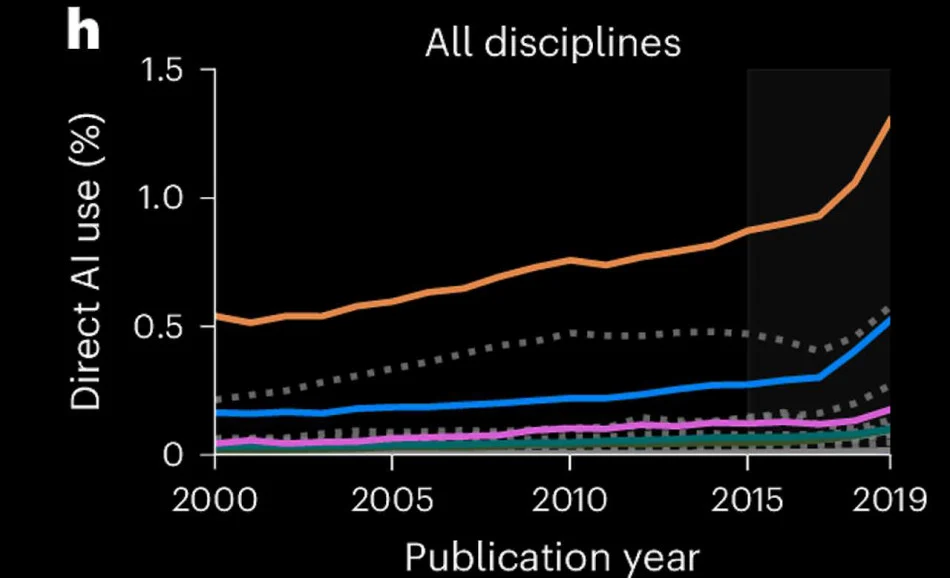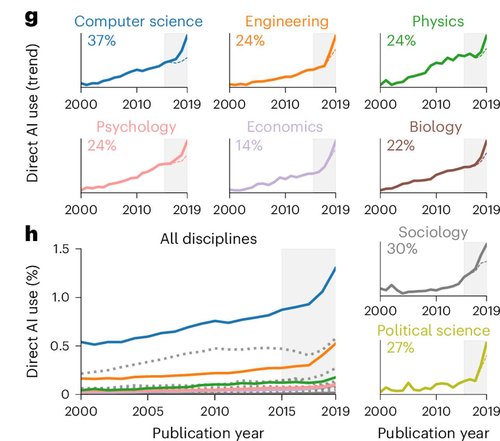Scientific articles mentioning artificial intelligence received more citations

Scientists have become more likely to cite articles about research using artificial intelligence in various fields of science, according to an analysis of almost 75 million scientific articles over the past 60 years. The number of such studies began to increase in 2015 with the introduction of the first reliable artificial intelligence algorithms for processing large data sets, which is often needed by scientists. At the same time, the analysis indicated that there is still a shortage of specialists in the field of artificial intelligence so that scientists can fully use its advantages. His results were published in the journal Nature Human Behavior.

Scientific articles mentioning artificial intelligence received more citations. Nature Human Behaviour, 2024
In which industries has AI been used the most?
The researchers analyzed scientific articles from the Microsoft Academic Graph database using two approaches: assessing the frequency of mentions of AI in the titles and abstracts of articles and comparing the relevance of AI capabilities in specific fields of science. So they identified the fields of science that have the most advantages from the use of AI, among them nuclear medicine, biological systems and engineering.
But the researchers also found that those who already find it difficult to succeed in science — women and ethnic minorities — benefited less from the use of artificial intelligence. According to scientists, this can further strengthen inequality in various fields of science. So their analysis not only shows the potential of using AI in research, but also highlights its risks. Further research should focus on implementing AI in ways that maximize its benefits for education, science and innovation.
- This year, the Nobel Prize was awarded to discoveries related to artificial intelligence in two fields of science. Thus, John Hopfield and Geoffrey Ginton won the prize in physics for the discoveries and inventions that enabled the emergence of artificial neural networks. And half of the prize in chemistry was awarded to Demis Gassabis and John Jumper for predicting the structure of proteins with the help of artificial intelligence AlphaFold2.